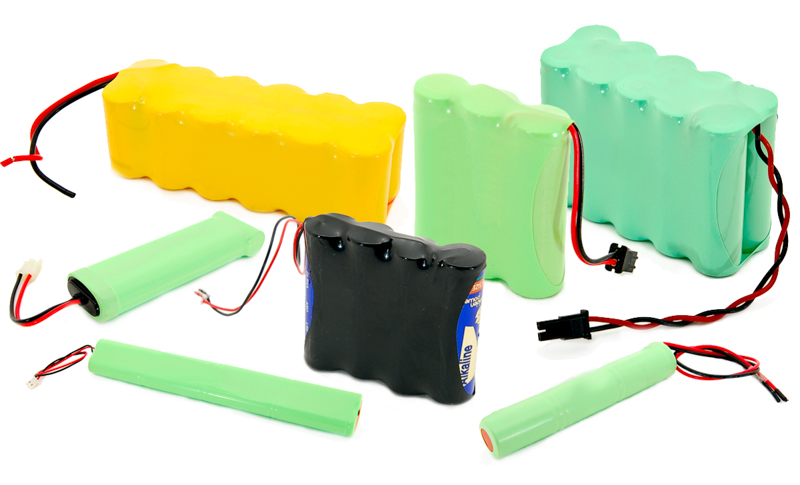Standard vs Custom Battery Packs
A standard battery pack refers to a pre-designed, readily available battery solution that typically comes with common attributes like voltage, capacity (measured in milliampere-hours, or mAh), and other specifications that are widely used across various applications. These attributes are standardized to allow Epec to quickly design standard battery packs with limited functionality that are compatible with a wide range of devices.

While these are standard battery packs, they are not on the shelf waiting for someone to buy them. Rather, we have developed several different battery management system (BMS) modules that we can use for many different applications. This allows us to move much quicker to develop a battery pack for a customer, but it is still a product that will need to be designed and assembled which means that there will be some non-recurring engineering (NRE) charges associated with the design. While these charges are not as substantial as for a true start-from-scratch custom battery pack, they are not insignificant.
Standard Battery Pack Attributes
Here are some common attributes associated with standard battery packs (note – these are a limited number, and as if you have additional parameters that need to be met we can accomplish this in our custom battery pack development process:
- Voltage (V): Standard battery packs often come in fixed voltage ratings, such as 3.6V, 7.2V, 12V, or 24V, among others. This voltage rating is chosen to suit the requirements of typical consumer electronics, industrial equipment, and other common applications.
- Capacity (mAh or Ah): Capacity represents the amount of charge a battery can store and deliver. In standard battery packs, capacities are typically specified in milliampere-hours (mAh) for smaller batteries or ampere-hours (Ah) for larger ones. Common capacities for consumer electronics might range from a few hundred mAh to a few thousand mAh.
- Cycle Life: Manufacturers often specify the number of charge and discharge cycles a standard battery pack can undergo before its capacity degrades below the industry standard of 80% of its original capacity. This information is essential for determining the pack's lifespan.
- Overcurrent and Overvoltage Protection: Standard battery packs typically include protection circuits to prevent overcurrent (excessive discharge) and overvoltage (excessive charging), enhancing safety.
- Certifications: All our standard battery packs can be submitted and are designed to pass the key battery certifications (e.g., DOT UN38.3, UL, CE) to ensure compliance with safety and performance standards. However, if these certifications are required it will add additional time and cost to the development of the pack.
These common attributes make standard battery packs a convenient and cost-effective choice for a wide range of applications. However, for applications with specialized requirements or unique constraints, custom battery packs may be necessary to tailor voltage, capacity, and other attributes precisely to the application's needs.
Difference Between a Standard Battery Pack and a Custom Battery Pack
The primary difference between a standard battery pack and a custom battery pack lies in their design, configuration, and purpose. Here are the key distinctions between the two:
Standard Battery Pack:
- Pre-Designed Configuration: A standard battery pack comes with a predetermined design, specifications, and features that cater to a wide range of applications.
- Limited Customization: Standard battery packs offer limited customization options. They are designed to fit common requirements and are not tailored to specific, unique needs. They come in fixed sizes, capacities, voltages, and form factors.
- Cost-Effective: Standard battery packs are often more cost-effective compared to custom solutions which makes them a preferred choice for applications where unique features are not critical.
- Quick Turnaround: Since standard battery pack materials are readily available, there is typically a shorter lead time from ordering to delivery. This is beneficial for projects with tight timelines.
Custom Battery Pack:
- Tailored Design: Custom battery packs are designed from the ground up to meet specific requirements of a particular application. This includes considerations such as voltage, capacity, size, shape, and performance characteristics.
- Highly Customizable: Custom battery packs offer a high degree of customization to meet unique needs. This can involve selecting specific battery chemistries, cell arrangements, and management systems tailored to the application's demands.
- Optimized Performance: Custom battery packs are engineered for optimal performance in the target application. This ensures the best possible efficiency, lifespan, and power delivery.
- Complex Integration: Integrating custom battery packs into products requires more design and engineering effort. Custom solutions often involve developing custom connectors, housings, and management systems.
- Higher Costs: Custom battery packs involve additional engineering, testing, and development costs, making them more expensive than off-the-shelf standard packs.
- Specialized Applications: Custom battery packs are suitable for applications with unique power requirements or constraints, such as medical devices, aerospace systems, electric vehicles, and specialized industrial equipment.
In essence, the choice between a standard battery pack and a custom battery pack depends on the specific needs of the project. Standard packs offer convenience, timeline, and cost-savings for common applications, while custom packs are essential when precise performance or compatibility is critical.
Need Help with a Standard Battery Design?
From design to production, our team of experienced engineers at Epec is here to help you design a battery pack that exceeds your needs.
Request a Quote Request Design Support Request More Information


